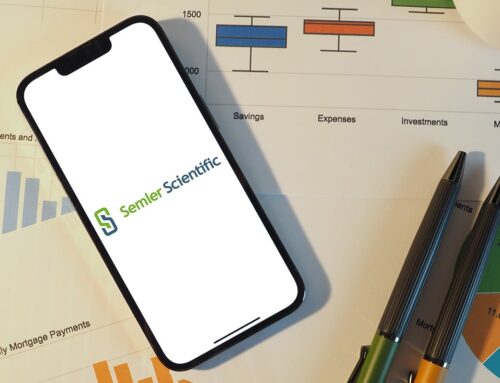When will Alabama get medical cannabis? Officials, producers see reasons for hope | Chatta
July 7, 2025
CULLMAN, Ala. — From the outside, it appears to be another one of over 1,500 farms in Cullman County, with a couple of facilities and a structure that will eventually serve as a greenhouse. The front office looks — and smells — like any other office space, with their current hemp-derived products on display and a couple of private offices behind a conference table.
But when Joey Robertson, CEO and president of Wagon Trail Med-Serv and a managing partner at Wagon Trail Hemp Farms, opens a door behind the front office, an herbal and skunky smell blows out, strong enough to leave one’s senses feeling overwhelmed.
That’s where Robertson produces hemp-derived products like gummies, which he has been doing since 2019.
“It’s been essentially the exact fall-in-line with what we’re going to be doing on medical, minus some infrastructure improvements and a bigger fence, so we’re already ready to roll,” Robertson said during a tour of his facility last month.
The Alabama Medical Cannabis Commission awarded Robertson an integrated facility license in 2023, meaning he can grow, process and sell products under one license. But Alabama’s medical cannabis program, approved by the Legislature in 2021, remains stalled, meaning Robertson has multimillion-dollar machinery sitting idly.
“We’ve been able to carry or offset most of our losses, though, with hemp,” he said. “So it’s made it to where hemp was hard to thrive, I guess you would say, because we’re turning so much back into keeping that (medical cannabis) license opportunity open.”
(READ MORE: What hemp products will be banned in Tennessee next year?)
After over two years of legal wrangling over the licensing process — and over four years after the Alabama Legislature first approved the medical cannabis program — state officials and cannabis producers like Robertson think they’re moving closer to making cannabis available for patients throughout the state, thanks in part to recent state appellate court rulings.
“I think the commission and the staff are more encouraged than we have been any time in the past to date,” said Alabama Medical Cannabis Commission Director John McMillan, saying he is “kind of coming around to being very hopeful” that medical cannabis could be available to Alabamians by the end of 2025, though he stressed that is a best case scenario.
But there are still many obstacles ahead, including ongoing legal battles and strong opinions regarding the program’s structure and fairness.
Marty Schelper, founder and president of the Alabama Cannabis Coalition and Alabama Republicans Against Marijuana Prohibition, said she was skeptical about the entire program, saying potential patients may turn to a potentially cheaper black market even when the program has been rolled out.
Schelper, who called the medical cannabis framework a “legal medical cannabis cartel,” said she believes that the current system is designed to control and regulate the industry by limiting competition, allowing license holders to “set their price on whatever your product is, because you have none of the competition.”
“They created the Alabama medical cannabis cartel, and they’re not allowed free markets, and that’s why they can’t implement medical cannabis in the state of Alabama,” Schelper said.
But others are sounding optimistic. Ray French, CEO for Specialty Medical Products of Alabama, a company that won a license in each of the attempted rounds, said that integrated operators who can grow, process and sell the final product, like his own business, will be able to start operating within “a few weeks, once the commission completes their process,” as they are already operational and possess the necessary equipment and certifications.

STALLED PROGRAM
The Alabama medical cannabis law, enacted in 2021, allows registered physicians to recommend cannabis for specific qualifying conditions. The approved product forms are restricted to tablets, tinctures, patches, oils and gummies (only peach flavor), with raw plant material and smokable forms remaining prohibited.
When the program is fully operational, there will be up to 37 dispensaries across the state. After the licensees have operated dispensaries for at least a year, the commission may allow licensees to open additional dispensaries.
Robertson said they plan to operate dispensaries in Cullman, Decatur, Florence, Athens and Montgomery, though he said that dispensary locations are subject to change. He said that some cities have a higher concentration of planned dispensaries compared to more rural parts of the state.
“So working with the commission, if they allow for us change and really cover more of the state, which I feel like they will, people get more coverage in medicine,” Robertson said.
But the licensing process, which began in 2023, has been contentious. The commission’s first round of license awards in June of that year was withdrawn amid controversy over the scoring of applications. A second round of awards later that year was put on hold because of allegations that the Medical Cannabis Commission violated the Open Meetings Act. The commission awarded licenses at the end of 2023, but those have been caught up in litigation.
(READ MORE: Chattanooga hemp businesses threatened by alcohol regulations)
The commission has already issued licenses in several categories, but integrated facility and dispensary licenses, which are required before doctors can be certified and allowed to recommend products to patients, have been on hold due to the ongoing litigation.
But the Alabama Court of Civil Appeals in May overturned a permanent injunction imposed by Montgomery County Circuit Court Judge James Anderson in April that blocked the last round of licensing because it was awarded under emergency rules.
The month prior, the Alabama Court of Civil Appeals overturned a temporary restraining order that prevented the commission from issuing licenses due to allegedly not complying with the Administrative Procedure Act, saying that Anderson lacked jurisdiction when it issued a stay in favor of Alabama Always, a company seeking a medical cannabis license, and dismissed the case.
A more recent lawsuit was brought by five parents who want the court to order the commission to establish a patient registry for medical cannabis patients. A scheduled hearing on the case was postponed late last month. As of Thursday morning, it had not been rescheduled.
All that remains for the commission to do before finalizing awards, said McMillan, is to conduct investigative hearings, which can be called by any applicant in the license category.
“We have notified the applicants that are eligible to participate as they want to, and then we’ve turned it over to the administrative law judge,” McMillan said, “We’re totally out of it, no communication, no nothing. It’s between him and the applicants now.”
But McMillan was vague about a timeline for the hearings, saying that several factors could influence it.
“It’ll depend on how many of the applicants want to participate in the hearing, and then how long it takes the administrative law judge to do the preparatory work for having the hearings and then to actually have the hearing,” McMillan said.
Robertson said in an interview he feels that is a reasonable prediction. He said his integrated facility, which includes an outdoor greenhouse and indoor growing facility, as well as processing and production facilities, is ready to begin operations as soon as he receives final approval.
Because cannabis plants can take months to grow, he plans to first procure raw plant material from cultivators, whose licenses have been approved and have been growing cannabis since the first half of 2024, to make the first few rounds of products.
“We want to be that option for people to be able to bring their biomass to us. We can convert it to oil products — either purchase it from them to resell or to produce their products for them to sell in the independent dispensaries,” Robertson said.
He said that with cannabis plants having been growing in the state since cultivators received their final licenses, the remaining steps can be completed within a month.
Because he is also a managing partner of Wagon Trail Hemp Farms, where they have been making seed-to-sale hemp-derived products since 2019, he also believes he won’t have much of a learning curve. The facility, he said, can process 1,000 pounds of raw plant material per day, which translates to about 80 kilos of oil daily.
“That’s enough oil for the entire state of Alabama. That’s enough to produce 3.5 million doses in one day’s worth of oil,” Robertson said.
Once they have the oil processed and tested, the production process is quite quick. They can produce 30,000 to 40,000 gummies in one shift.

ONGOING LITIGATION
But lawsuits have continued. Will Somerville, an attorney representing Alabama Always, one of the firms that sued the Medical Cannabis Commission after not receiving a license, said in an interview in May the hearings should be conducted on a “level playing field,” saying that applicants initially chosen in December 2023 should not receive an unfair advantage.
There is a strong belief that some licenses were awarded to those who did not “raise as much of a stink about the process” as others, Somerville said, a practice he believes to be illegal and discriminatory.
“I think that’s why they rewarded the people who sucked up to them,” Somerville said. “I don’t think there’s any other basis for awarding those licenses.”
(READ MORE: Chattanooga area has most hemp shops per capita in Tennessee)
French, of Specialty Medical Products of Alabama, called those claims “unbelievable.” He said that his company is well qualified, with extensive experience in the hemp industry in Alabama. He currently also owns Oscity Labs, which produces CBD edibles and tinctures in an integrated facility.
The facilities, he said, have been certified as having Current Good Manufacturing Practices, a set of regulations enforced by the FDA to ensure products are consistently manufactured under controlled and healthy conditions.
“We feel like we are not only a qualified applicant in all ways, but we are one of the handful of operators that are actually already CGMP’ed. I mean, that’s a huge lift,” French said.
Alabama Always has also filed a federal lawsuit alleging the commissioners showed bias and acted against those who challenged the process. Somerville said the lawsuit seeks to determine the extent of the Medical Cannabis Commission’s misconduct and its impact on its clients, with monetary damages potentially on the table, but he doesn’t foresee it stalling the process further.
“We don’t think a lot of these commissioners have the ability to be impartial,” Somerville said, saying the lawsuit is intended to ensure the process moves along according to the law. A hearing has not been set on the lawsuit.
McMillan said that the timeline for making medical cannabis available also depends on how many applicants participate in the investigative hearings process and how long the administrative law judge takes to prepare and conduct them.
French said the appeals court’s decision to overturn the restraining order was “very encouraging news.”
But the delays can be financially straining for applicants as they wait to begin production. French said “keeping employees operational, keeping operations going” has been a challenge, as well as maintaining expensive facilities without being able to sell products.
Robertson predicted that he would come out even in about two years after investing $4 million into the facilities. Because of the delays, he said that it could be four years before he is able to break even.
“Between the legal fees and operational fees, and holding all of the facilities and everything else, it’s been a multimillion-dollar venture at this point. We have $4 million of infrastructure sitting here, and we can’t do anything with it, and then we’ve got all the other operations and legal fees,” Robertson said.
Read more at AlabamaReflector.com.

Search
RECENT PRESS RELEASES
Related Post



